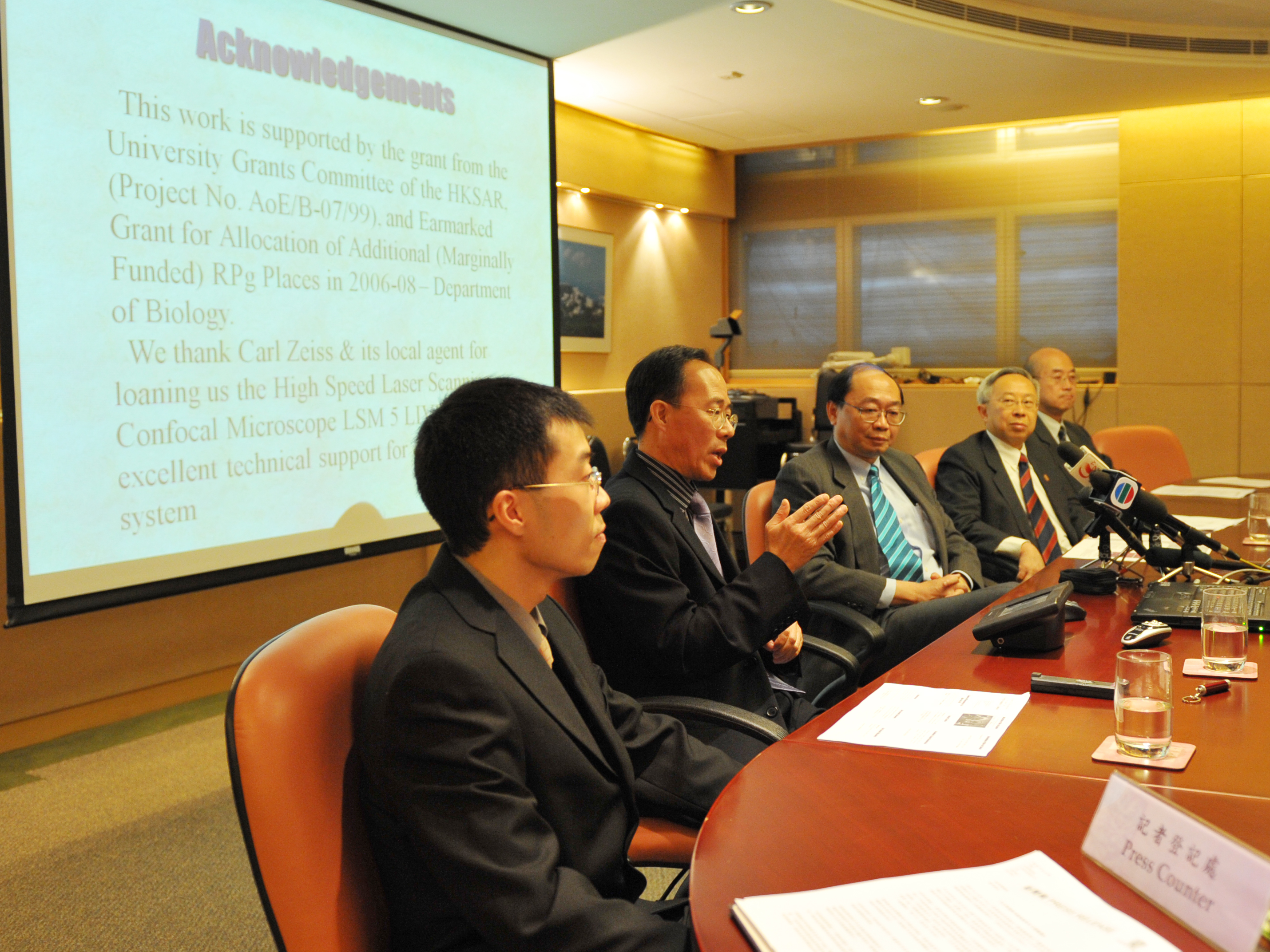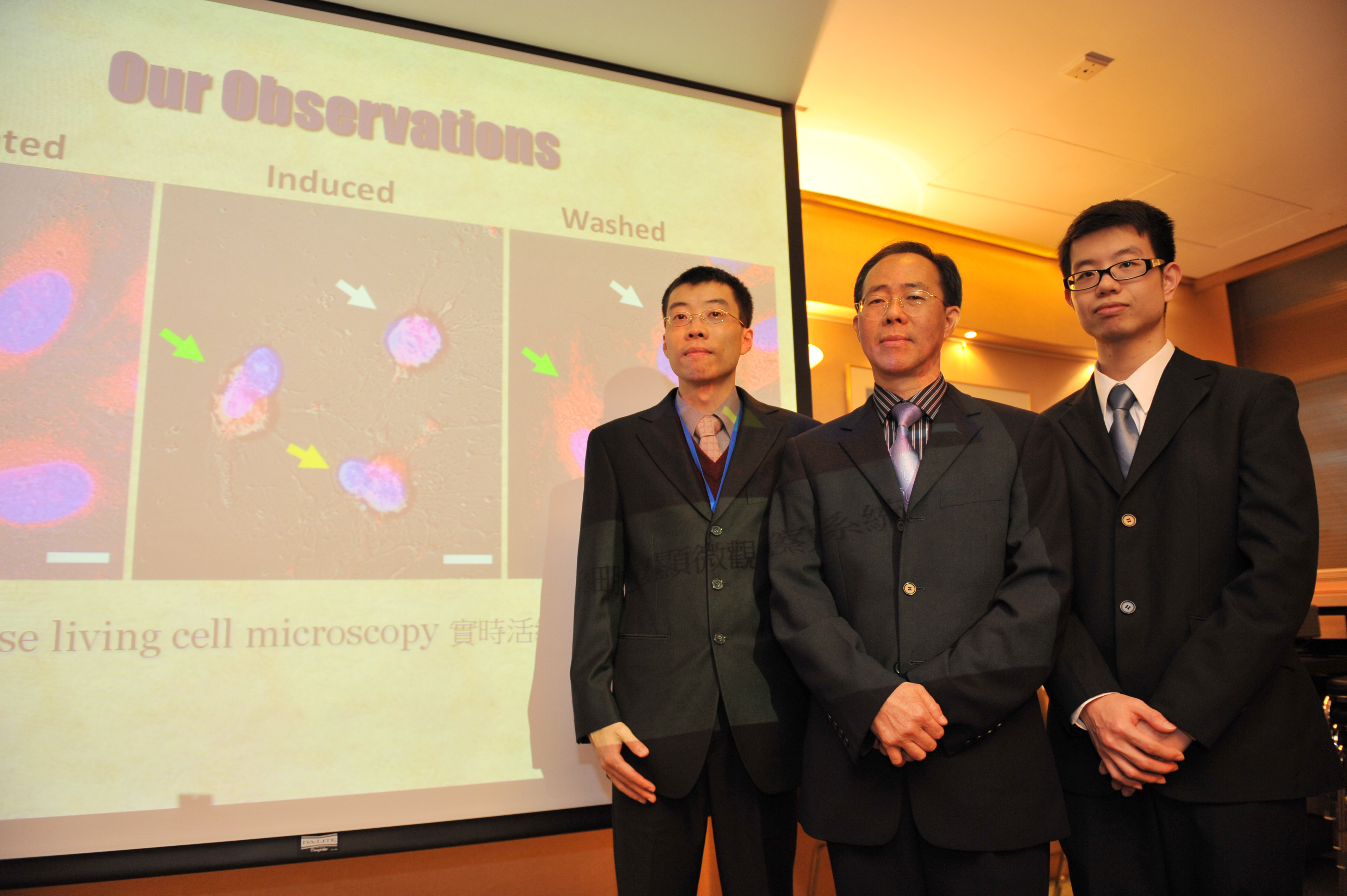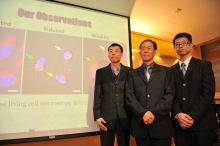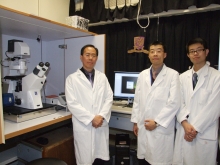CUHK
News Centre
CUHK Discovers Reverse of Dying-process in Cancer Cells
Scientists at The Chinese University of Hong Kong (CUHK) revealed for the first time that cancer cells can reverse a chemical induced dying-process, which is generally assumed to irrevocably commit cells to die, in a study published in the British Journal of Cancer (in print on 7 January 2009).
Researchers in the Department of Biology separately treated human cervical, skin, liver, breast and prostate cancer cells with three different chemicals which initiate cell suicide (apoptosis) to see if cancer cells could survive after they had passed the point of no return for cell death.
The result showed that the cancer cells recovered once chemicals to induce the cells’ suicide process were removed, even after the cells had passed normal critical checkpoints. These include cell shrinkage, the breakdown of mitochondria (the cell’s energy store), condensing of the nucleus and activation of a decisive group of ‘executioner’ proteins called caspases. Despite having initiated these critical events, the cancer cells regained their shape, function and continued to divide. Cells failed to recover only once the nucleus had started to disintegrate – an event that has been known right at the end of the cell suicide process.
This finding reveals an unexpected escape tactic which cancer cells could use to survive chemotherapy.
Professor Ming-chiu Fung, the corresponding author based at CUHK said, “We found that various cancer cell lines can survive programmed cell death. This research suggests the existence of an escape tactic which cancer cells might call upon to survive chemotherapy treatment.”
“Our finding sparks new leads to research what drives this ability and to what extent the reversibility of apoptosis contributes to the survival and division of cancer cells during cycles of anticancer treatment. Answers to these questions will provide potential new therapeutic targets in our war against cancer.”
Dr. Lesley Walker, Cancer Research UK’s cancer information director said, “This eye-opening discovery has created an entire map of new routes to explore in the search for new therapy targets. It is an intriguing advance and one that we hope will play a useful part in our efforts to beat cancer.”
Chemotherapy is one of the major cancer treatments by promoting cancer cells into apoptosis. However, cancer may recur during repeated courses of treatment, and that has been mainly attributed into the deficiency of apoptotic pathways in cancer cells, anticancer drugs resistance of tumorigenic stem cells, and inefficiency of drug penetration into solid tumors. The current new finding uncovers another possibility that may contribute to cancer recurrence and, therefore, suggests new targets for the therapeutical advancement to the war against cancer.
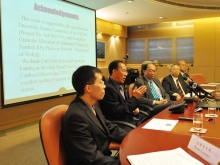
From left: Mr. Hogan Ho-Lam Tang, PhD Candidate, Department of Biology, CUHK Professor Ming-Chiu Fung, Professor, Department of Biology, CUHK Professor Henry N.C. Wong, Chairman, Research Committee, CUHK Professor Hoi-Shan Kwan, Dean, Faculty of Science, CUHK Professor Norman Ying-Shiu Woo, Chairman, Department of Biology, CUHK
